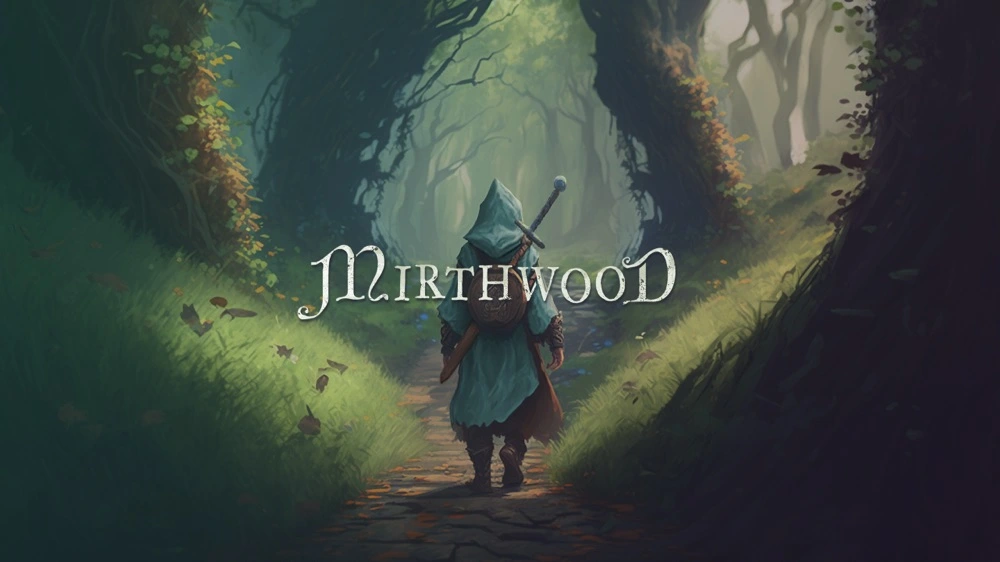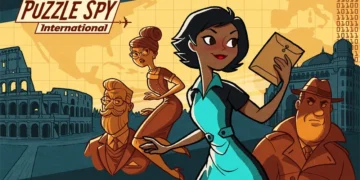Developer: Bad Ridge Games
Platform: PC
Gene(s): RPG, Simulation
Publisher: V Publishing
Mirthwood is an RPG life simulation. Mirthwood was developed by Bad Ridge Games and published by V Publishing. Games similar to Mirthwood would be Echoes of the Plum Grove, Fable, Rim World and a few others. This game is currently available for Windows.
Mirthwood is a single-player game where you are thrown into Medieval Times, where your land has fallen to the war, and you leave your family and town behind to save yourself and start a new life. You make your way to a new land where you are greeted by a stranger who gives you the deed of an old house and land that you can use to cultivate and build up. Upon your arrival, you get to explore and meet several characters who will give you quests and items that you can complete and collect to build a better life. Mirthwood allows players to build relationships with characters, farm, fight enemies, explore, trade, and build all within this mediaeval fantasy.
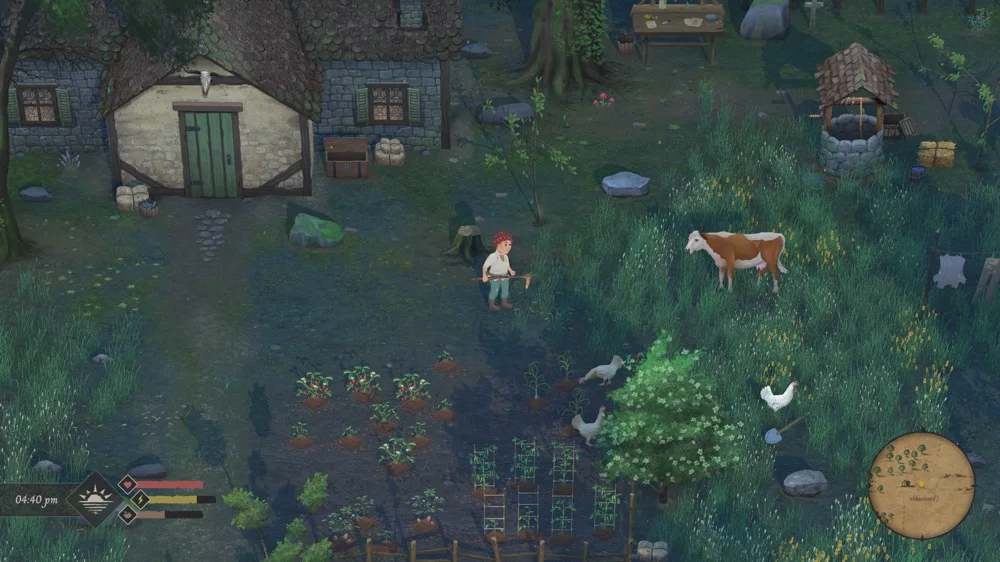
The controls for Mirthwood are fairly simple. As the game begins, you are brought through a prologue which shows you the key binds and mechanics as you encounter different things. The tutorial is made in a smooth way where players will learn what needs to be done once they encounter a new obstacle. As far as the controls go, there is nothing out of the ordinary, as everything is easy to pick up on. The UI of the game makes it very accessible for players to familiarise themselves with the controls. Overall, the controls worked really smoothly, which was great.
The art style of Mirthwood is charming and unique. The visuals remind me of the nostalgic games with great usage of hand-drawn characteristics. With its 2.5D style and flat character art, the game captures a great motion between 3D elements, and the characters are able to occupy a 3D space, which gives the game more definition. Objects and characters on the screen are paper-like, which has an interesting charm to it. The game resembles a pop-up book where the standing points are these paperesque objects and characters within a nearly looking 3D world. The game does a really nice job at capturing a mediaeval-looking town, from the clothes NPCs wear to the way the land/buildings look to the armour on soldiers. The era is portrayed really well through the dialogue of the characters as they use diction from back in the day, which is amusing to read. What I really liked about the dialogue, which is not seen in many other games, is that the actions are written out alongside the speech, which makes it feel like reading a script. The colours in the game are more on the low saturation/dull side, which gives the game an older feel to it. I do really like the amount of details added to the environment and making some areas look so much more dreadful compared to others. The usage of minimal lighting, day and weather cycle makes the game feel so much more realistic. It embraces the era, which is really nice when captivating the visuals around this game. The soundtrack, accompanied by the visuals, is quite nice. The soundtrack, accompanied by the visuals, is quite nice. The soundtrack is filled with whimsical, subtle music and instrumental sounds like harp and strumming. I like the ambient sounds as well, from the whistling of wind, tool usage, chatter, birds and many more.
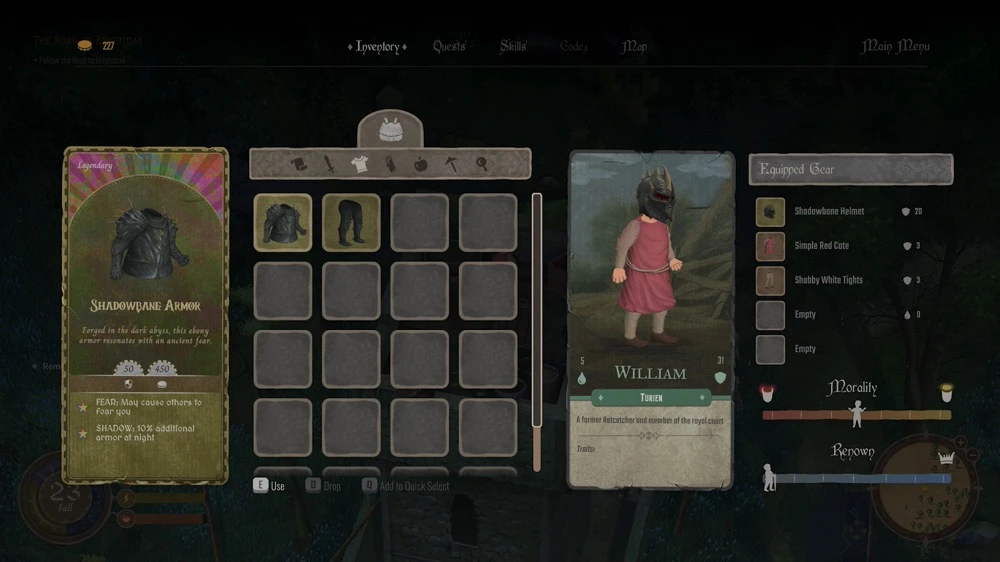
Mirthwood was initially set to release in September, but due to some issues with the build, the developers delayed it to November, and I believe this was a good decision. The build, from its initial stage, has made several improvements, but it is quite unfortunate that bugs are still present. One of the bugs I encountered was using the fast travel sign, where once activated, the whole screen would go black, and only your character was visible. Of course, the presence of bugs may take away from some players’ playthroughs, but the overall gameplay is almost relaxing and enjoyable.
You start Mirthwood by getting to customise your character: appearance (good amount of options to choose from), origin (5 to choose from: each have a different personality to them), class (3 to choose from: they each have a good and bad effect) and profession (7 to choose from each of them also have a good and bad effect). Getting to choose from these options is a great way to play the game by trying out different classes and professions, as this will either benefit or harm your progression.
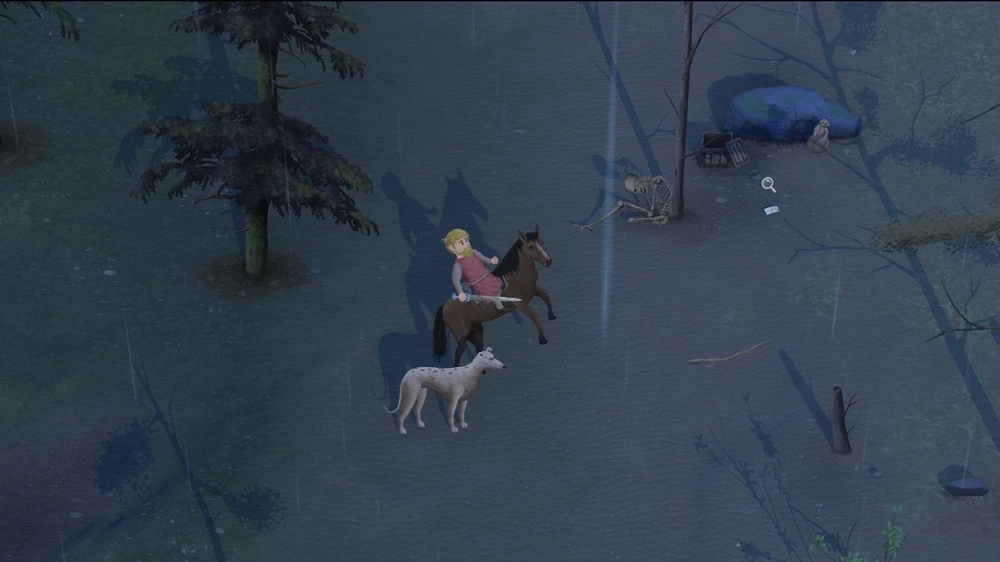
You start off with nothing, as you had fled from your village that was raided, and Mirthwood does a good job at wanting players to start from the bottom. The abandoned house that is now under your name is where you will begin to manage yourself. A day-to-day cycle makes it so that players can plan out their day accordingly based on tasks they wish to get done. First and foremost is the farming element. Here, you have the ability to build a farm, plant and harvest crops, raise animals and upgrade your facilities. I quite liked the farming aspect of this game, as it was pretty laid back and was not extensive. Seeds can be bought or gifted to you, and some can only be harvested in specific seasons. You can even brew your own alcohol to set a different pace from crop tending. Besides just farming, crafting is essential in this game, and you start off with a few recipes, which you unlock more and more as you forage and complete quests. I enjoyed that there was a huge range of craftable items, making you be creative with your farm and buildings. As for foraging, the visuals at times made some foraging items blend in too well with the environment, so if you do not know what certain plants look like, you’d be going around hoping the interactable button shows up. As Mirthwood is a life simulator, the game does consist of players having to collect certain numbered items to upgrade their tools and facilities, which is done by exploring.
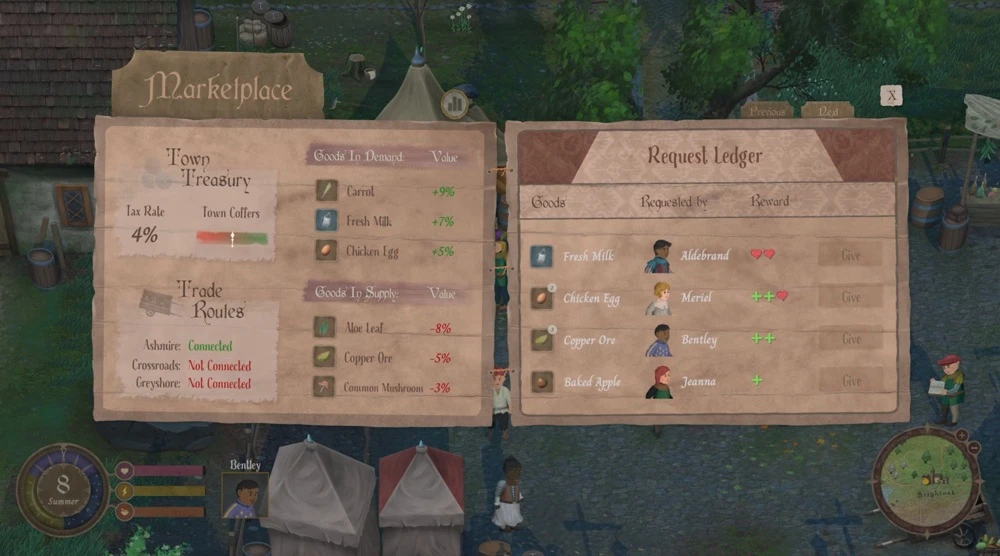
Life simulators invite players to socialise with NPCS, and this can be done by completing their quests, gifting them gifts or chatting. Mirthwood is best at getting you to live a social life amongst NPCs, as your interactions will be a great factor in their feelings towards friendship and romance towards the player. What I liked is that when you get near an NPC, you can see a tile off them, which displays information that will help you build stronger relationships. Chatting with NPCs is done in a way I have not come across in other games, as the concept is so unique. You get to pick from several approach cards to which you can select further cards that will strike a conversation. If the right choice is not made for that specific NPC, then you will damage your relationship. This game does a great job of wanting you to monitor the NPCs and interact accordingly rather than in a random manner. As I was wandering around the world, it almost felt like there were so many NPCS that you could interact with, each having their distinct profiles. From the game, the choices you make impact your traits, and the same goes for the NPCs you interact with; I wish there were times when the cards were not an option because building relationships with the NPCs could become consuming and difficult. If you build a strong enough relationship with an NPC, you can choose to marry them, and they can even accompany you on your journey (or have animal companions), which makes the game even more entertaining.
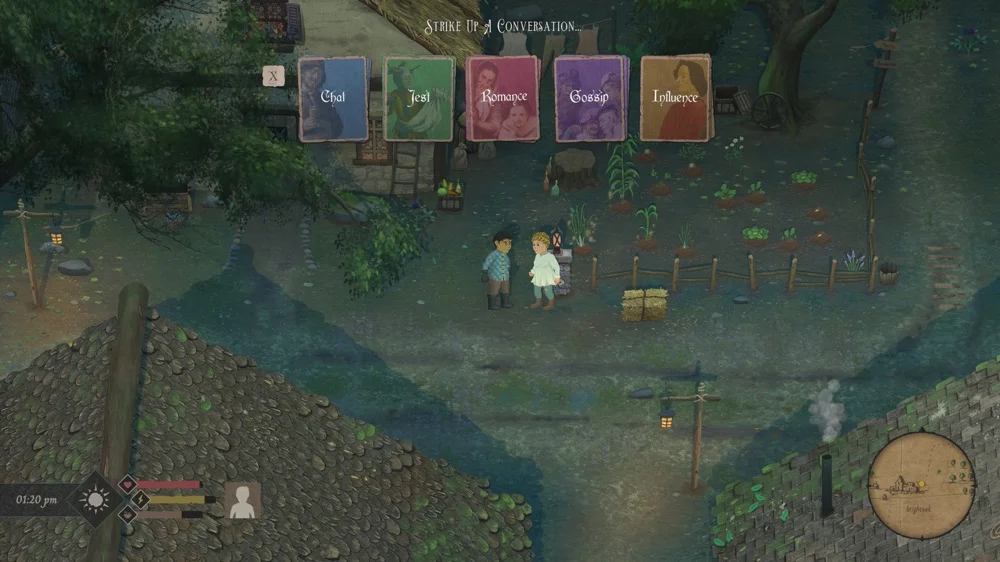
Beyond the essential life-building, Mirthwood has its own story that you can embark on. Now, it is important to know that this is a sandbox game where you will continue to play even past the completion of the story. The story begins when you explore Bright Oak, and you have the freedom to progress at your own pace. Quests are accessible through exploration and interactions that can also be completed at your own pace, which makes the gameplay quite calm and not hectic at all.
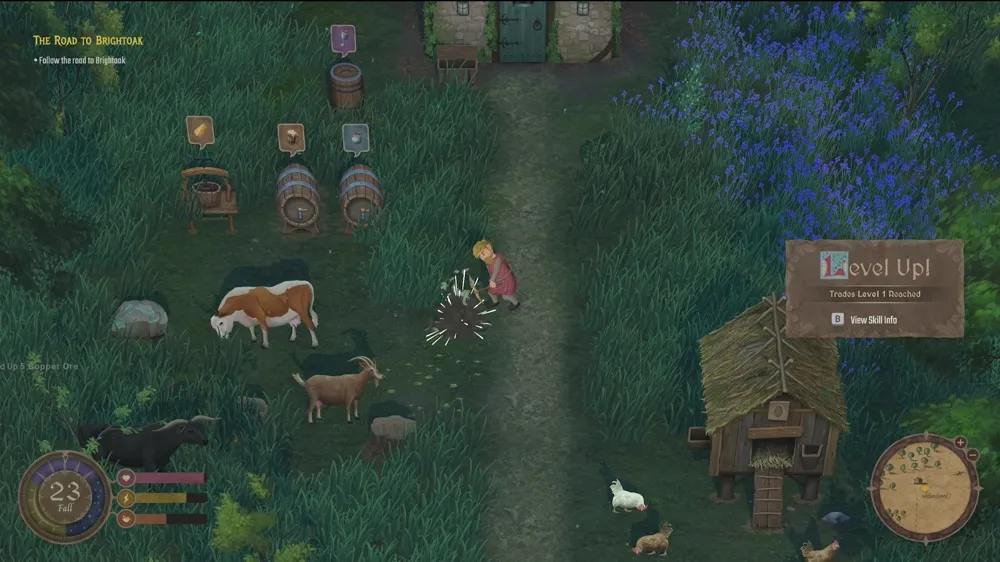
Mirthwood also has a skill system which naturally develops throughout the progression of your game. There are six categories that you can choose from, which, when fully levelled up, give you perk cards that can benefit your character. What I did like was that perk cards have limited space, so it is best to choose the ones you feel will be the most beneficial on your journey. There is also the renown and morality system where your choices of picking the good over the bad will increase your moral decisions, and this can be perceived in several ways from NPCs. For instance, if you steal something from a box, then your morality will drop.
The stamina, health and hunger bars are also displayed nicely to make them accessible for players to keep an eye on. I felt that in Mirthwood, they did not deplete as much, which was great because it meant that you did not have to cook an endless amount of food. UI is interesting for tool selection, which is the circle wheel rather than a toolbar at the bottom, and I believe the choice perfectly matches the atmosphere Mirthwood entails.
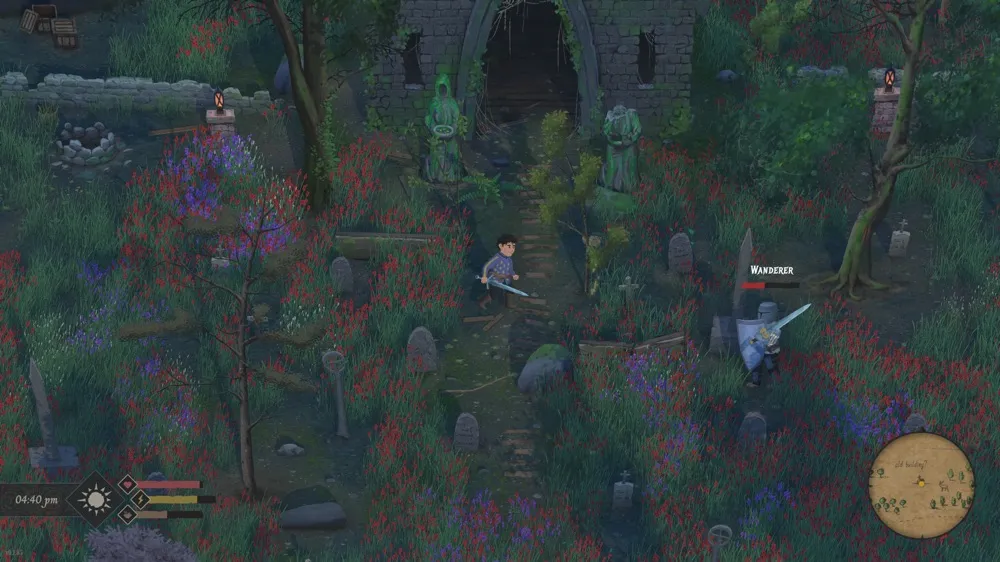
Everything in Mirthwood, from farming, socialising, and carrying out quests, was nicely balanced except for the combat, which I felt was quite poor and clunky. The combat mechanics include things like blocking, rolling, and parrying, except attacking at a continuous pace almost felt like I was randomly striking at the enemy. Even with trying to pace my attacks and block the enemy, it felt like I was still getting hit, which made me just want to avoid any danger at all. At times, the best option was just to evade the enemy, if possible, because the combat was underwhelming both for melee and long-range weapons. However, if you do end up killing enemies, then looting them can be extremely helpful as you may equip loot better than what you currently possess. What I did enjoy was the stats for armour/clothing you could equip that would get reactions from NPCs as you walked by them. For instance, I had put the pumpkin head on and found NPCs laughing and reacting in a positive way.
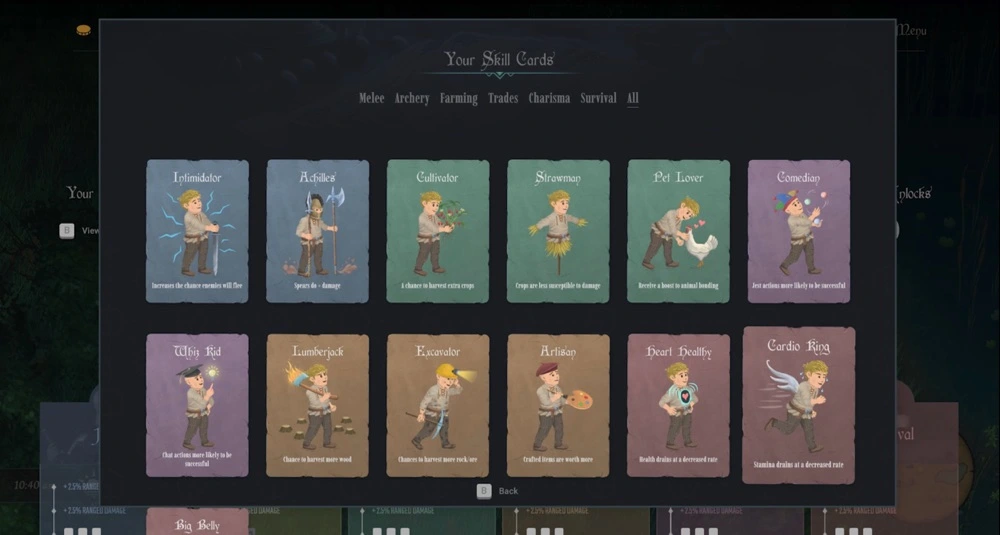
Overall, it is astounding the wonders a two-man developer team has accomplished as the premise and main bearing of the game is exactly what is needed from a mediaeval tale charted by you! There may be some bugs present, and the combat may feel a bit underwhelming, except everything else about this game really gets players to tend their life and build up their land. There is so much to do, and no day in Mirthwood will be boring as you can always keep yourself occupied. I definitely am looking forward to the future updates the developers have planned (especially co-op multiplayer), as it will make Mirthwood even more exciting to play!
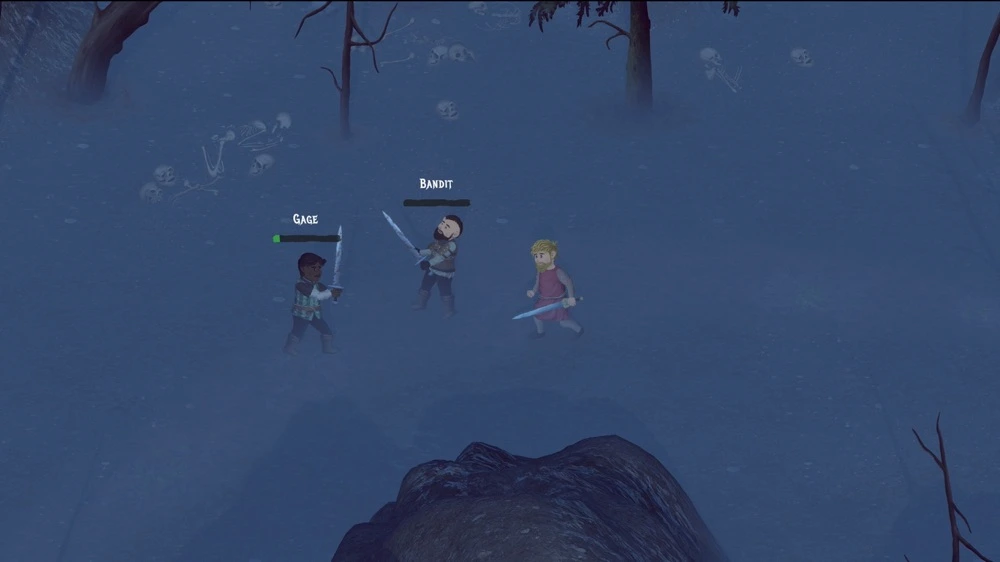
If you are looking to play a captivating open-world life simulator game with distinctive visuals and a whimsical soundtrack, then this game is for you. Mirthwood allows players to really choose who they want to be, giving players the ability to build a new life through trading, farming, fighting, socialising, completing quests and exploring. Thus, you should definitely check out Mirthwood!
Overall: 8.5/10
This is S & S. We are world game explorers. We play games. We have played over 10,000+ games! We travel, we write reviews AND we play more games!!!!

